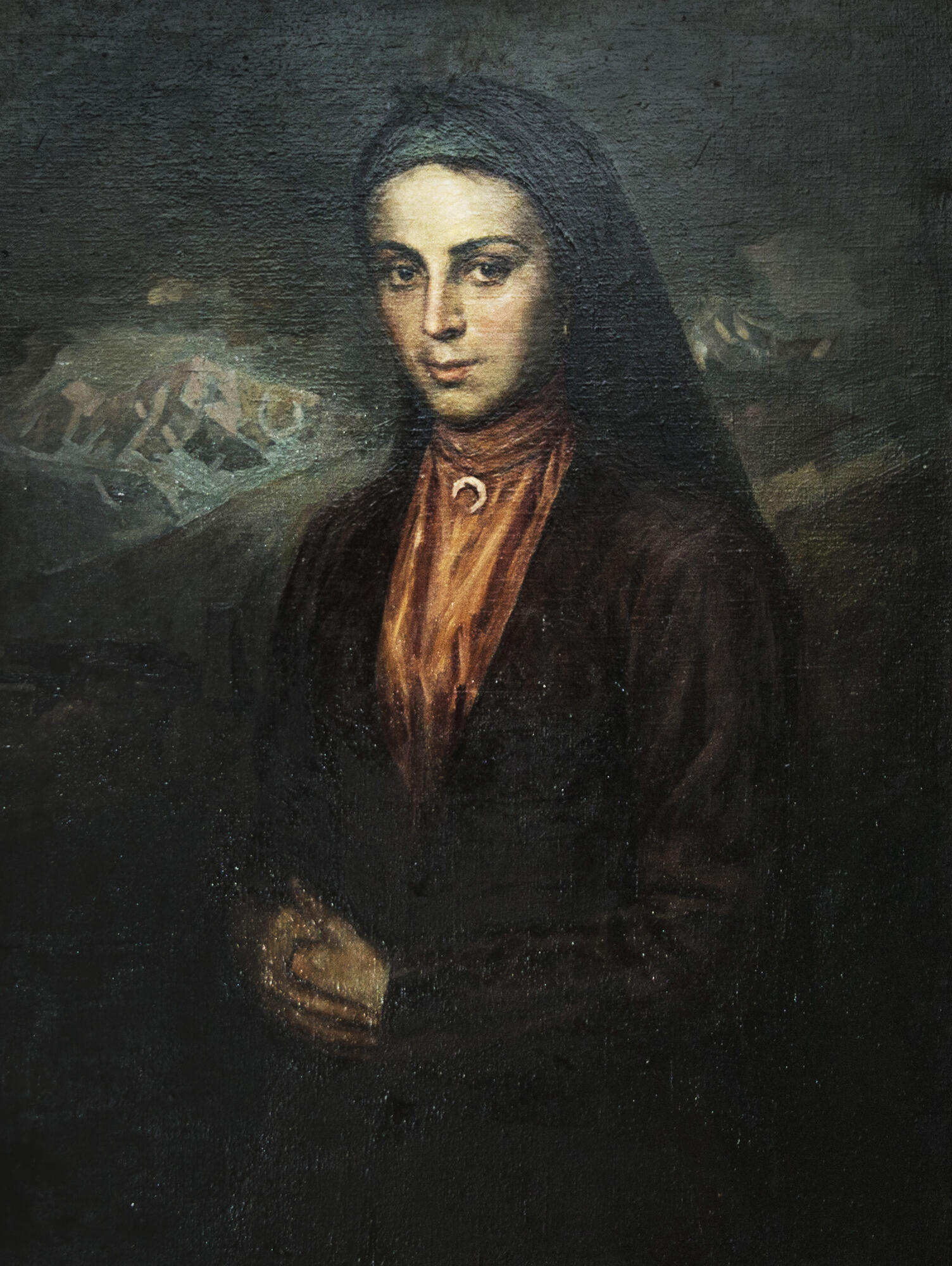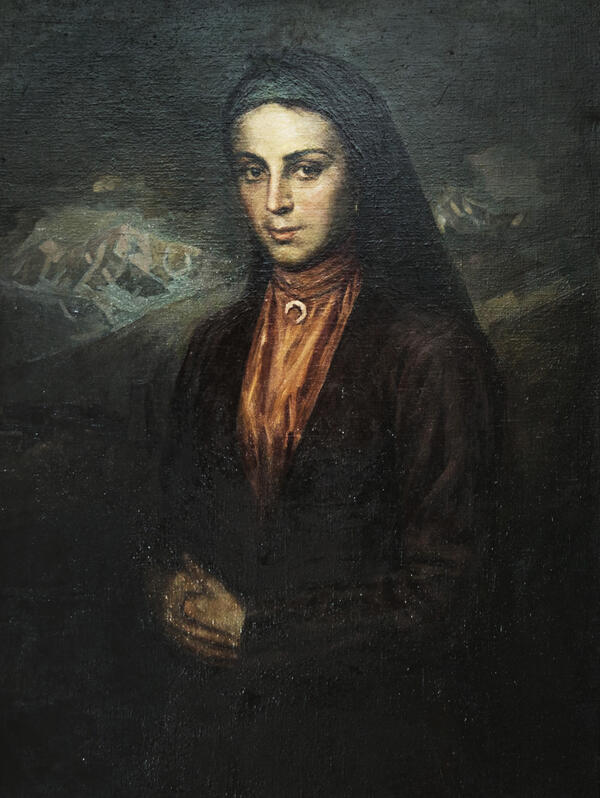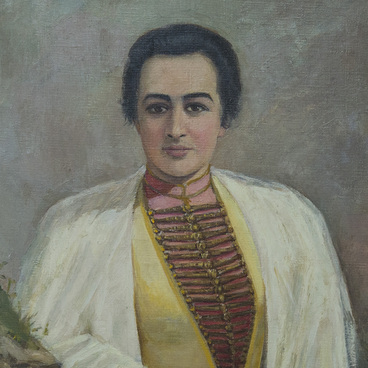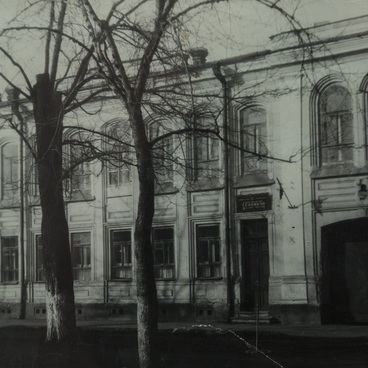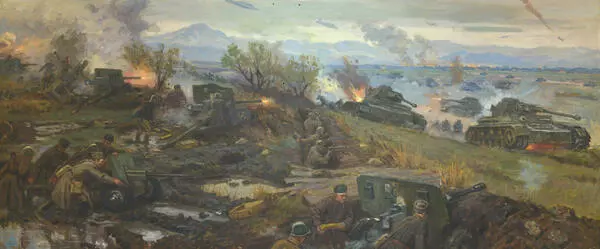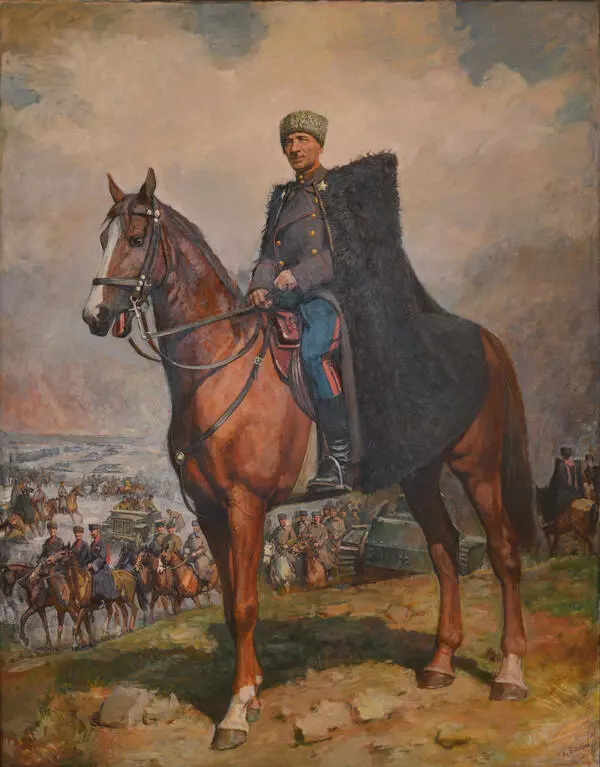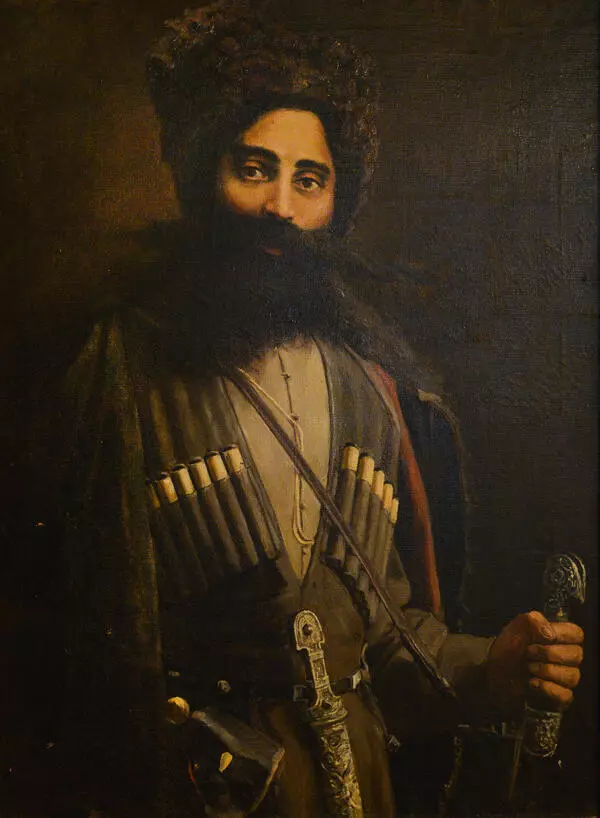Maria Gavrilovna, mother of the poet Kosta Khetagurov, was born into the family of the Gauss Gubaev, a second lieutenant in the Russian army. Gubaev rose to the rank of major despite not having any post-secondary education. He spent his final years in Georgia, approximately five kilometers from the city of Gori, where he acquired his own estate.
Gubaev had three children. He married off his eldest daughter to a Georgian prince. He sent his son Ivane to the cadet corps in Saint Petersburg. But the death of the elder Gubaev forced Ivane to return home, and therefore did not complete his studies. There, he became a teacher in Nar’s parochial school and married a girl from the Mzokov family.
Maria Gubaeva became the wife of Lieutenant Levan Khetagurov, an officer in the tsarist army. He was one of the initiators of the resettlement of Ossetians highlanders, who suffered from landlessness after the Caucasian War, to Karachay-Cherkessia. At the place where Levan Yelizbarovich brought 150 compatriot Ossetian families in 1870, they founded the village of Georgievsko-Osetinskoe, which today bears the name of Kosta Khetagurov.
According to Andukapar Khetagurov, a relative and friend of the family, Maria Gavrilovna was a woman of rare beauty with a gentle temperament and a sharp mind. She was also described as such by other residents of the Nar Basin. According to their stories, Maria khetagurova was a thin woman, relatively tall, with thick and long black hair, which she always made into a tight braid. Her acquaintances remembered her as a kind and joyful person with a good sense of humor.
Unfortunately, Kosta barely knew his mother; Maria Gavrilovna died when he was very young. However, researchers were not able to find any find reliable information about when and how she died.
Stories were preserved by the 110-year-old Kodzian Dzaparova, daughter-in-law of Kosta’s stepmother, about how the birth of Maria Khetagurova was very difficult and how it undermined her health: ‘Kosta was born on a terrible day and terrible hour. For three whole days, she was “lost” in childbirth. The whole family and the whole village gathered around her. Her condition was difficult, and she lay in a barn.’ Andukapar Khetagurov also corroborated that Maria Gavrilovna died some time after giving birth: ‘I remember that he [Kosta] was brought to us in the village of Tsmi as an infant after the death of his mother, and the matrons of Tsmi oohed and aahed over him. Later, one of Chenze Tuaeva-Dzaparov’s close relatives took care of the child’.
Gubaev had three children. He married off his eldest daughter to a Georgian prince. He sent his son Ivane to the cadet corps in Saint Petersburg. But the death of the elder Gubaev forced Ivane to return home, and therefore did not complete his studies. There, he became a teacher in Nar’s parochial school and married a girl from the Mzokov family.
Maria Gubaeva became the wife of Lieutenant Levan Khetagurov, an officer in the tsarist army. He was one of the initiators of the resettlement of Ossetians highlanders, who suffered from landlessness after the Caucasian War, to Karachay-Cherkessia. At the place where Levan Yelizbarovich brought 150 compatriot Ossetian families in 1870, they founded the village of Georgievsko-Osetinskoe, which today bears the name of Kosta Khetagurov.
According to Andukapar Khetagurov, a relative and friend of the family, Maria Gavrilovna was a woman of rare beauty with a gentle temperament and a sharp mind. She was also described as such by other residents of the Nar Basin. According to their stories, Maria khetagurova was a thin woman, relatively tall, with thick and long black hair, which she always made into a tight braid. Her acquaintances remembered her as a kind and joyful person with a good sense of humor.
Unfortunately, Kosta barely knew his mother; Maria Gavrilovna died when he was very young. However, researchers were not able to find any find reliable information about when and how she died.
Stories were preserved by the 110-year-old Kodzian Dzaparova, daughter-in-law of Kosta’s stepmother, about how the birth of Maria Khetagurova was very difficult and how it undermined her health: ‘Kosta was born on a terrible day and terrible hour. For three whole days, she was “lost” in childbirth. The whole family and the whole village gathered around her. Her condition was difficult, and she lay in a barn.’ Andukapar Khetagurov also corroborated that Maria Gavrilovna died some time after giving birth: ‘I remember that he [Kosta] was brought to us in the village of Tsmi as an infant after the death of his mother, and the matrons of Tsmi oohed and aahed over him. Later, one of Chenze Tuaeva-Dzaparov’s close relatives took care of the child’.
